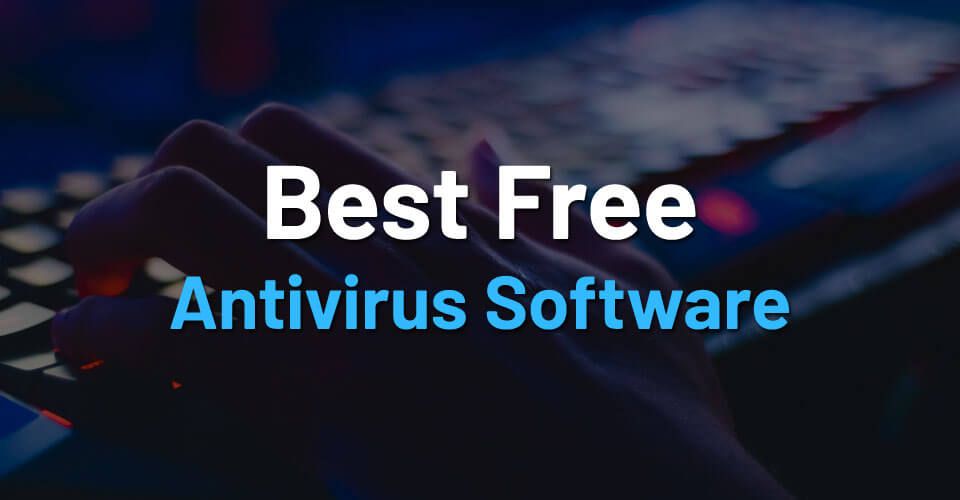LIMITED OFFER: Best (REALLY FREE) Antivirus Software in 2020
Every device connected to the internet is vulnerable to malware, but you don't have to pay to stay safe while you surf. Here are 5 top tips on how to avoid getting hacked or infected by viruses, as well as our rundown of the best free antivirus programs.

Five simple ways to protect yourself
Internet security software to protect your device is a must, now more than ever in this digital age. But you can boost your level of protection, without downloading an antivirus program or paying for it:
1. Keep your software up-to-date: Threats change daily and new so-called ‘zero-day attacks’ constantly challenge weak points in Windows software. So it's vital you keep your software up-to-date or else it's useless.
For Windows 8, 8.1 or 10, just click on 'Start', go to Control Panel and click the 'Windows Update' icon, where it will show you if there are any updates for your PC. Sadly, Microsoft is no longer releasing updates for Windows 7.
2. Protect your identity online: With more and more of us using the web to bank online and do other sensitive tasks, coming up with solid passwords is more vital than ever.
Don't use the same login for lots of sites. If one falls into the wrong hands, your whole online life is up for grabs. Try picking one and add a few letters related specifically to each site you're logging into and change your passwords (at least for vital accounts) every few months.
3. Don't open unknown email attachments: Most web crime still happens via email, so be on guard when checking yours. Don't open any attachments you're not expecting, or click any random links you find in the text.
4. Only download software from trusted websites: Looking for a piece of software? Find out which company makes it first and then go to its site to get it there, rather than from a third party site found via Google. For smaller free or shareware programs, try using big sites such as CNET Download, rather than just getting them from anywhere that shows up.
5. Understand the main threats and where they come from: Threats to your computer come in different guises with various funky names. Collectively, they're considered malicious software, or 'malware'. The main types are viruses, Trojans and Worms.
Creating and spreading malware is big criminal business. Cracking into your computer can reveal a breadth of information about you. It could include your bank details for ID fraud or for just directly taking your cash. Other uses of malware are to steal the emails in your address book/contacts list to find real addresses to sell to spammers. These unsuspecting people may well then be emailed from your address.
Other viruses allow your computer to be controlled via a 'DDOS' (distributed denial-of-service) attack. This is where a website is closed down due to simulated, simultaneous use by millions or even billions of users. This can be for political reasons, a ransom, to hurt competitors or 'just for fun'.
A note about free antivirus software...
Pay for antivirus software from the most famous brands like Norton and McAfee and it'll cost you roughly $40 per year. Yet you can get free software which, while not quite as effective or full of features as paid-for programs, still keeps on top of some threats. Regardless of which route you take, remember:
There are many different types of malware. Free antivirus programs can protect you from viruses, but offer limited security from other threats such as ransomware, trojans or phishing scams.
It's just like how a seatbelt protects you, but doesn't offer 100% security while driving. Modern cars also feature airbags, Automatic Emergency Braking, Lane Departure Warning, Blind Spot Detection and so forth. If you want to be really safe online, spend about $40 per year and get one of the best paid security suites.
Antivirus: Free PC software downloads
There are plenty of free downloads available for Windows – here we separate the wheat from the chaff.
Windows Defender: Free to those with 'genuine' Windows
Windows Defender comes pre-installed on all 'genuine' versions (i.e., not installed on more than one computer or counterfeit) of Windows 8 and later.
It runs in the background and tells you when you need to take specific action. You can use it anytime to search for malware if your computer isn’t working properly, but reviews are mixed on how thorough the scans are.
TotalAV Free Antivirus: Feature-rich antivirus software
The company behind TotalAV Antivirus boasts over 10 million users, and awesome TrustPilot scores, which may be due to this well-reviewed piece of software offering decent protection and a lot of features.
Download TotalAV here.
Sophos Home Free: Solid protection, simple to set up
Simple to set up, Sophos Home Free runs in the background, providing real-time protection and antivirus scans. It's phishing protection in particular has been praised by tech site PCMag UK, although TechRadar found it lacking in terms of options and settings.
Download Sophos here.
Malwarebytes For Windows: Good but no real-time protection
While the free version only provides real-time protection for 14 days after you download it, Malwarebytes for Windows offers powerful on-demand infection detection. Tech publications recommend using it alongside other antivirus software.
Download Malwarebytes here.